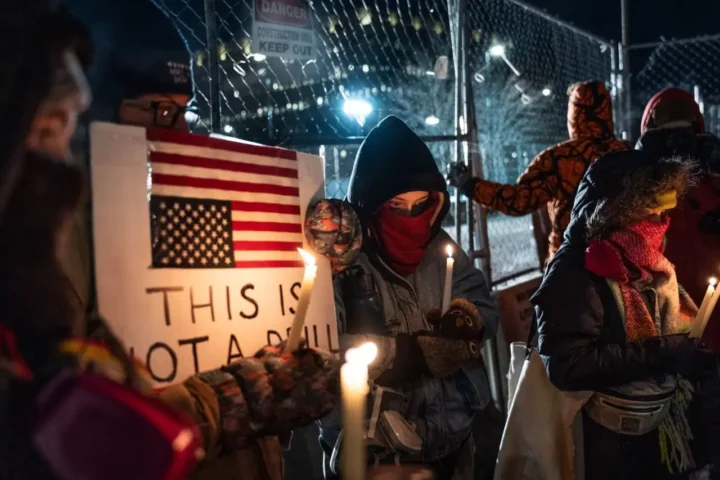United States Deputy Secretary of State Christopher Landau formally welcomed the first group of Afrikaner refugees to American soil this week, an initiative driven by the Trump administration’s emphasis on protecting groups facing what it describes as “unjust racial discrimination.”
“This tremendous accomplishment, at the direction of Secretary Rubio, responds to President Trump’s call to prioritize U.S. refugee resettlement of this vulnerable group,” read a statement issued by the White House. “We stand with these refugees as they build a better future for themselves and their children in the United States.”
The administration framed the move as part of its broader “America First” foreign policy agenda, emphasizing the need to protect individuals facing racial persecution abroad. However, critics have sharply condemned the decision, accusing the administration of racial bias by selectively choosing which refugees it deems worthy of rescue.
The arrival of Afrikaner refugees has reignited global interest in this unique community, often described as “Africa’s white tribe” — a people whose story stretches back centuries on the African continent.
A Long Journey Through Time
The Afrikaners trace their ancestry to the 17th century, when European powers, seeking new trade routes, stumbled upon the southern tip of Africa. Portuguese navigator Bartolomeu Diaz first rounded the Cape in 1488, and by 1652, the Dutch East India Company had established a crucial halfway station there under the leadership of Jan van Riebeeck.
Initially populated by Dutch settlers and later bolstered by French Huguenot refugees fleeing religious persecution, the small colony grew rapidly. Over time, the settlers, mixed with German immigrants, indigenous Khoikhoi people, and slaves brought from as far afield as Indonesia, India, and Madagascar, gave rise to a new, distinctly African European culture: the Afrikaners.
As colonial tensions simmered, many settlers, dissatisfied with Dutch Company rule, took to the vast and untamed frontier. These “Trekboers,” or nomadic farmers, embodied a rugged spirit, living isolated, often harsh lives beyond the Cape’s boundaries. Over generations, they developed a strong identity marked by resilience, a deep sense of independence, and an Old Testament worldview, becoming known as the Afrikaners.
Wars, Exodus, and Nationhood
The Cape Colony changed hands in 1795 when the British, battling the Dutch globally, seized control. British rule brought the abolition of slavery in 1834 and the imposition of English as the official language, leading many Afrikaners to embark on the Great Trek — a mass migration into South Africa’s interior.
The pioneers clashed violently with indigenous groups and founded several Boer republics, including the Transvaal and the Orange Free State. However, their autonomy was short-lived. The discovery of gold triggered two brutal wars with Britain. The Second Boer War (1899-1902) devastated the Afrikaners, with scorched-earth policies and concentration camps claiming thousands of civilian lives.
In 1910, South Africa unified under British dominion, and Afrikaner nationalism simmered for decades until it erupted politically in 1948. That year, the National Party, representing largely Afrikaner interests, introduced apartheid — a system of racial segregation that would stain the country’s international reputation until its dismantling in 1994.
Today, while political power in South Africa has shifted, economic disparities remain stark. Whites, although a minority, continue to control a significant portion of the country’s wealth and land. Yet fears of land expropriation and violent attacks have fueled anxieties among Afrikaners, prompting some to seek refuge abroad.
A Controversial Welcome
The Trump administration’s decision to offer sanctuary to Afrikaners has drawn scrutiny not only because of the racial dynamics but also because of the broader context of U.S. immigration policies, which have often been criticized as exclusionary toward refugees from other regions.
Supporters argue that the Afrikaners are facing real threats and deserve protection like any other persecuted group. Detractors, however, point to the administration’s broader track record, suggesting the move highlights selective empathy.
Still, for many Afrikaners, the emotional ties to Africa run deep. As one man told journalist Kajsa Norman in her book Bridge Over Blood River: “We are the white tribe of Africa and I want my people to understand that we have just as much right to be here. Once Africa gets under your skin, nothing can replace it.”
As more Afrikaner families prepare to arrive in the United States, their future — and their unique story — is entering a new and uncertain chapter.











